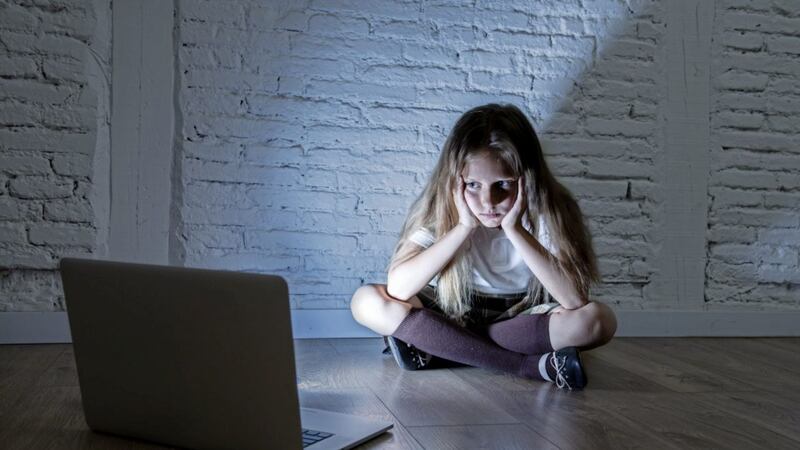OUR kids are constantly connected to the cyber world. Some of them are at an age where their phone never leaves their hands. Our younger children have tablets and devices. Most of our kids are on game consoles.
A lot of our kids live their lives in online worlds, places parents, and indeed the police, find hard to reach . They are generally sitting just feet from us, engrossed in their tablet or device.
Because they are within the confines of the home where there are no apparent physical dangers we think them perfectly safe. However, worrying statistics released by the NSPCC this week suggest that this might not always be the case and that we should be on our guard.
According to them, cyber-related sex crimes against children in Northern Ireland are up to almost five every week and that number has increased by 268 per cent in just four years. It seems that individuals with malice in mind are able to reach our children more easily.
In 2018/19, a total of 243 recorded sexual offences against children were 'flagged' by the PSNI as having an online element, representing a 268 per cent increase over the past four years from 66 offences in 2014/15. In total, 12 per cent of all 2,036 recorded sexual offences against children in Northern Ireland last year were 'cyber-enabled'.
A record 8,224 child sexual offences logged by police in England, Wales and Northern Ireland had an online element, according to figures obtained by the NSPCC through a Freedom of Information request in England and Wales and provided by the PSNI in Northern Ireland.
The charity has now called on the next prime minister to prioritise online safety and bring in laws that are robust and proportionate.
Across the UK, a total of 40 out of 44 forces provided the NSPCC with data on cyber-related sex crimes against under 18s including online grooming, sexual communication with a child and rape.
For offences where the age was recorded, 13 was the most common age of the victim but there were 164 offences committed against children aged 10 and under, even including babies yet to reach their first birthday.
The NSPCC say they fear that the figures may not reveal the true extent of the problem due to potential under-recording of online's role in these crimes and wide logging variation across forces. It also comes on to other online harms against children recorded by police such as indecent image offences.
The worrying figures were revealed ahead of the NSPCC's flagship annual conference How Safe Are Our Children? in London last week, just days before the UK government closed its consultation on its Online Harms white paper which proposes introducing an independent regulator to enforce a legal duty of care on tech companies to keep users safe on their platforms.
The NSPCC have led the charge on this for the past two years with its Wild West Web campaign. Neil Anderson, head of NSPCC Northern Ireland, called on the next leader of government to act and protect children.
"Behind each offence is a vulnerable child suffering at the hands of sex offenders and, worryingly, we know these figures are the tip of the iceberg," he said.
"Thousands of children are drowning in a sea of online threats, so it's now time for the next prime minister, whomever he may be, to cast out the life jacket.
"He must hold his nerve and introduce an independent regulator to protect children from the risks of abuse and harmful content."
For tips on how to keep your children safe online log on to the NSPCC website on Nspcc.org.uk/preventing-abuse/keeping-children-safe/online-safety/








